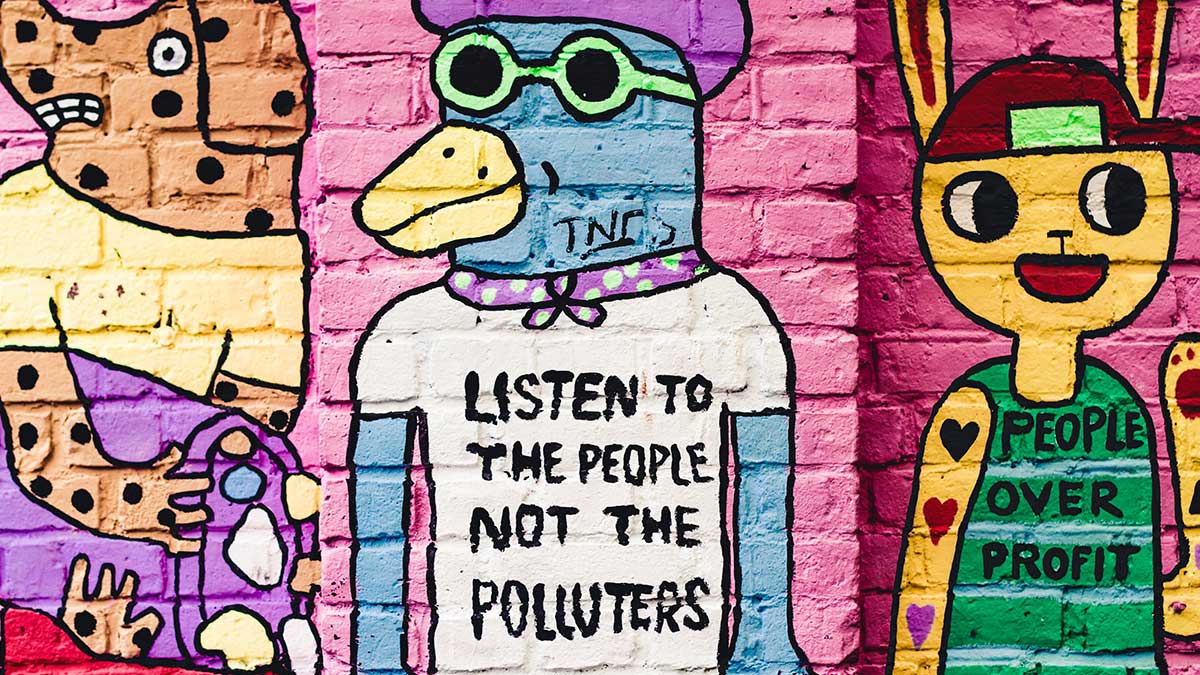The upheaval we have seen across the world in the past six months due to COVID-19 has been unprecedented. Just as we live today in a globalised economy, the pandemic has shown us that we live also in a truly globalised society, where the problems and issues affecting one country are quick to spread and trouble the whole world. The world seems a less united place, despite our common experience.
As we look ahead, perhaps advertising and marketing can show us some of the ways that we can make a positive and unifying contribution to society and how, in the words of UK politician Jo Cox, we as people have ‘more in common’ than just simply inhabiting the same rock in the galaxy.
A more altruistic society
At national level, if we can draw one positive from COVID-19, it would be that the outbreak has brought people together in a way that we have not seen for decades and focused on our role and responsibilities as citizens. From the hundreds of thousands of volunteers who signed up to support the National Health Service, to people abiding strictly to the rules of social distancing and staying at home. This has also been mirrored across Europe, with all nations bringing in lockdowns of varying degrees and extent.
Within advertising, COVID-19 has had an immediate impact on all of us and it has forced us all to consider profoundly our roles and responsibilities as industry professionals. The Advertising Association is voice of the industry in the UK, bringing together agencies brands and media owners.
We began 2020 with a new mission to champion the importance of responsible advertising and its value to people, society, businesses and the economy. Our focus on responsibility was supported by research from advertising’s think tank, Credos, which has shown declining levels of public trust over the past decade. In the most recent polling of a list of trusted industries measured by Savanta ComRes for Credos, just 44% of respondents stated they trusted advertising.
Earlier this year, while COVID-19 was still far from the minds of many of us in Europe, the Advertising Association launched a report into the economic and social impact of advertising in the UK. It also looked at what we can do to improve the standing of our industry and where we should aim our focus to improve levels of trust. Advertising that contributes to society was defined as one that changes behaviour, promotes a good cause, such as a charity, or one that promotes a positive message – such as diversity.
The value of social conscience for advertisers
Almost three-quarters of industry professionals in our survey for the report felt that it was very important for the industry to contribute positively to society. However, only 7% of the general population felt that they had encountered such an advertisement. If there were proof needed of the work we need to do to share our message and demonstrate to consumers that we care, this is it.
But during COVID-19, our industry has had the opportunity to demonstrate what it can achieve and the difference it can make for clients and consumers. Businesses in the UK have provided advertising inventory to support our NHS workers and brands across the country are turning their resources to those in need.
The UK Out of Home industry launched a nationwide digital campaign to thank the country’s medical staff and other key workers. National broadcasters such as Channel 4 and ITV joined forces with advertisers to show solidarity and support for workers. Brands diverted their manufacturing focus to producing hand sanitiser and personal protective equipment, while others donated produce or a percentage of their turnover to charitable causes.
All of these examples demonstrate the social contribution made by the advertising industry at this time and this has built clear equity among the public. For example, according to a UK survey by YouGov, those feeling very or somewhat favourable towards supermarkets rose from 48% in February to 66% in April. Many of these supermarket brands have used the power of advertising to share their message to consumers and show their contribution during the crisis. The two are surely linked.
Make lasting change
But what now? While still of major concern, we are seeing COVID-19 in retreat across large parts of the world (barring a second wave). However, our social contribution as an advertising industry cannot go into retreat with it. We must use the skills we have gained during this time to make long lasting and continued change – to be a force for good long after this outbreak has settled down.
In our report on advertising’s social contribution, two issues stood out – mental health and the environment, especially among the young. The research showed 53% of people aged 16-24 think that advertising should spend more time promoting environmental issues. It also demonstrated that 71% want advertising to focus on promoting awareness of mental health.
Climate action and positive mental health are two of today’s most crucial issues. In recent months, this has been joined by the explosion of interest and support for the Black Lives Matter movement. If we consider having a positive attitude to diversity and inclusion as part of knowing your self-worth and knowing you are valued, we can see clear links between mental health and issues around diversity. A more diverse and inclusive environment is more positive for everyone, colleagues, businesses and society.
Brands such as Nike have championed diversity strongly over recent years, but these have been joined in recent weeks and months by increasing numbers of others, from Chanel and Louis Vuitton right down to Yorkshire Tea. Some might deride brands joining these movements at the present time. After all, there’s only one letter difference between a bandwagon and a ‘brandwagon’.
But, if there’s one thing that unites them both, it’s that when a wagon starts to move, it’s those with the tightest grip and surest commitment who stay and on and don’t fall off. If we want to show our responsibility and our dedication to causes such as diversity, mental health and climate, it’s the deeds we do, not the words we say, that will speak loudest.
I want to see our industry learn from the COVID-19 outbreak and to build on the responsibility agenda. Our goal should be to be more responsible, more trusted and more successful. By achieving this, we won’t just be delivering for ourselves and our clients, but we will be showing we are a responsible industry to consumers and societies across the globe. Despite the challenges right now, if we recognise our responsibilities, we will emerge from our present predicament as a successful global industry at the heart of a dynamic world economy and a vibrant, inclusive society.
Featured image: ev / Unsplash




























